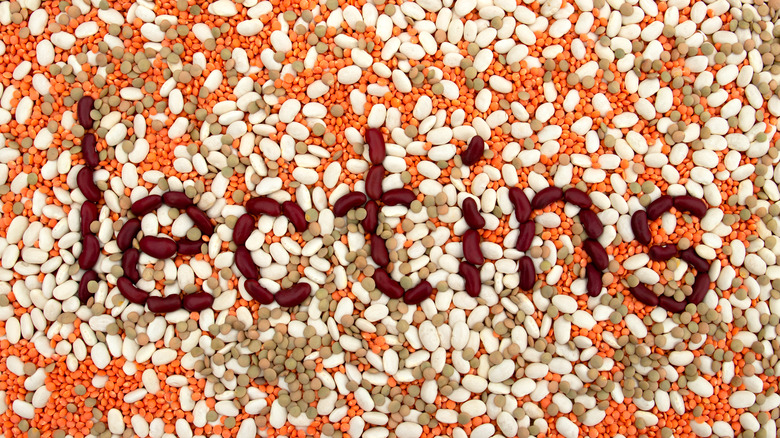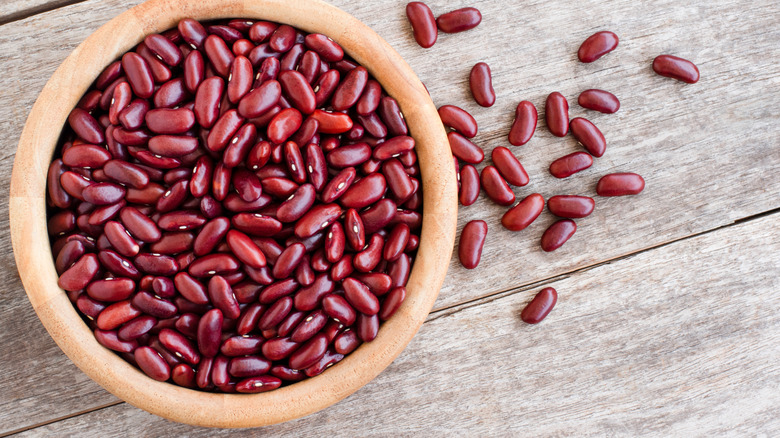Here's How The Lectins In Your Diet Could Be Affecting Your Body
We may receive a commission on purchases made from links.
While most people by now are familiar with celiac disease and the digestive complications surrounding gluten, there is another protein out there that has garnered attention over the past few years and spawned its own accompanying fad diets.
Lectins, also known as "antinutrients," a type of protein that binds to carbohydrates, are naturally present in a number of healthy foods that we consume regularly. Legumes such as beans and whole grains like wheat contain particularly high concentrations, according to the Harvard T.H. Chan School of Public Health. Nightshade plants tomatoes and potatoes are other sources of lectins, per Healthline.
Dr. Steven Gundry ushered lectins into the national conversation with his book "The Plant Paradox," published in 2017, which cautioned people to avoid lectins and shared tips and suggestions for lowering one's lectins intake, an approach that became known as The Plant Paradox Diet. He claimed that lectins can cause a number of adverse health effects and lead to chronic health conditions.
When a food containing high amounts of lectins is eaten raw or undercooked, like kidney beans, it can cause digestive issues because lectins can't be broken down in the stomach. Harvard Public Health posits that the same features lectins use to protect plants in the natural world, such as remaining "stable in acidic environments," could also help explain why they are difficult for the gut to digest.
Cooking can significantly reduce lectins
Kidney beans have a type of lectin called phytohaemagglutinin, that in addition to being hard to spell, can cause red blood cells to clump together, and can trigger negative reactions including nausea, diarrhea, and gas. But there is a simple solution.
Over at the Food Network, registered dietician Amy Gorin noted that the aforementioned worst offenders when it comes to lectins — beans and whole grains — are typically not consumed raw. Studies have demonstrated multiple ways to reduce lectins in healthy foods, including properly cooking, fermenting, soaking, or sprouting them, per Healthline.
Some studies also indicate that lectins can adversely impact mineral and nutrient absorption, but the Harvard T.H. Chan School of Public Health qualifies that the research on this topic is still inconclusive as to how it affects a person's health long-term. The most effective way to protect against any potential side effects of lectins is to cook your beans thoroughly.
As long as you take steps to reduce lectins, there is no reason why you need to remove beans or other food containing lectins entirely from your diet. After all, beans provide a valuable source of protein and antioxidants, and may reduce your risk of heart disease and cancer, via WebMD.

